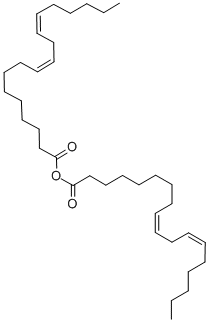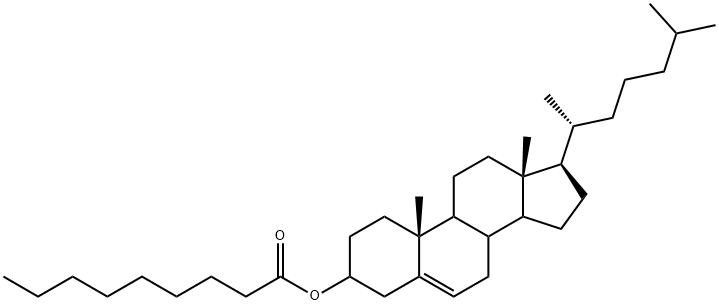OCTYL BUTYRATE
Synonym(s):Octyl butanoate
- CAS NO.:110-39-4
- Empirical Formula: C12H24O2
- Molecular Weight: 200.32
- MDL number: MFCD00048939
- EINECS: 203-762-4
- SAFETY DATA SHEET (SDS)
- Update Date: 2024-12-18 14:15:32

What is OCTYL BUTYRATE?
Description
Octyl butyrate has a green, herbaceous odor remotely reminiscent of orange but more so of galbanum and parsley with a sweet, melon-like flavor. It may be synthesized from n-octanol and butyric acid in the presence of HCl.
Chemical properties
Octyl butyrate has a green, herbaceous odor remotely reminiscent of orange, but more so of galbanum and parsley and a sweet, melon-like flavor.
Occurrence
Reported found in the essential oil of Heracelum villosum Fisch. and from the fruits of Pastinaca sativa. Also reported found in fresh apple, orange juice, melon, strawberry fruit, beer, purple passion fruit juice, purple passion fruit, yellow passion fruit, fresh plums, mountain papaya and okra.
Preparation
From n-octanol and butyric acid in the presence of HCl.
Definition
ChEBI: Octyl butanoate is a carboxylic ester.
Aroma threshold values
Detection: 8.2 ppm
Taste threshold values
Taste characteristics at 20 ppm: waxy, fruity and green with a sweet, creamy nuance.
General Description
Octyl butyrate is one of the major constituents of the essential oils of Heracleum sphondylium subsp. Ternatum. It occurs naturally in the mature fruit?of wild parsnip and muskmelon. Octyl butyrate is also a promising candidate as a lure for yellowjackets.
Properties of OCTYL BUTYRATE
| Melting point: | -56 °C (lit.) |
| Boiling point: | 224 °C (lit.) |
| Density | 0.862 g/mL at 25 °C (lit.) |
| FEMA | 2807 | OCTYL BUTYRATE |
| refractive index | n |
| Flash point: | 218 °F |
| Odor | at 100.00 %. fresh waxy fruity green oily earthy creamy natural jasmin |
| JECFA Number | 155 |
| CAS DataBase Reference | 110-39-4(CAS DataBase Reference) |
| EPA Substance Registry System | Butanoic acid, octyl ester (110-39-4) |
Safety information for OCTYL BUTYRATE
| Signal word | Warning |
| Pictogram(s) |
 Exclamation Mark Irritant GHS07  Environment GHS09 |
| GHS Hazard Statements |
H317:Sensitisation, Skin H411:Hazardous to the aquatic environment, long-term hazard |
| Precautionary Statement Codes |
P261:Avoid breathing dust/fume/gas/mist/vapours/spray. P272:Contaminated work clothing should not be allowed out of the workplace. P273:Avoid release to the environment. P280:Wear protective gloves/protective clothing/eye protection/face protection. P391:Collect spillage. Hazardous to the aquatic environment P302+P352:IF ON SKIN: wash with plenty of soap and water. P333+P313:IF SKIN irritation or rash occurs: Get medical advice/attention. |
Computed Descriptors for OCTYL BUTYRATE
New Products
4-Fluorophenylacetic acid 4-Methylphenylacetic acid N-Boc-D-alaninol N-BOC-D/L-ALANINOL Tert-butyl bis(2-chloroethyl)carbamate 3-Morpholino-1-(4-nitrophenyl)-5,6-dihydropyridin- 2(1H)-one Furan-2,5-Dicarboxylic Acid Tropic acid S-2-CHLORO PROPIONIC ACID ETHYL ISOCYANOACETATE 2-Bromo-1,3-Bis(Dimethylamino)Trimethinium Hexafluorophosphate (6-METHYL-[1,3]DITHIOLO[4,5-b]QUINOXALIN-2-ONE INDAZOLE-3-CARBOXYLIC ACID 4-IODO BENZOIC ACID (2-Hydroxyphenyl)acetonitrile 4-Bromopyrazole 5,6-Dimethoxyindanone 2-(Cyanocyclohexyl)acetic acid 4-methoxy-3,5-dinitropyridine 2-aminopropyl benzoate hydrochloride 1-(4-(aminomethyl)benzyl)urea hydrochloride diethyl 2-(2-((tertbutoxycarbonyl)amino) ethyl)malonate tert-butyl 4- (ureidomethyl)benzylcarbamate Ethyl-2-chloro((4-methoxyphenyl)hydrazono)acetateRelated products of tetrahydrofuran








You may like
-
 Octyl Butyrate CAS 110-39-4View Details
Octyl Butyrate CAS 110-39-4View Details
110-39-4 -
 2033-24-1 98%View Details
2033-24-1 98%View Details
2033-24-1 -
 1975-50-4 98%View Details
1975-50-4 98%View Details
1975-50-4 -
 2-HYDROXY BENZYL ALCOHOL 98%View Details
2-HYDROXY BENZYL ALCOHOL 98%View Details
90-01-7 -
 2-Chloro-1,3-Bis(Dimethylamino)Trimethinium Hexafluorophosphate 221615-75-4 98%View Details
2-Chloro-1,3-Bis(Dimethylamino)Trimethinium Hexafluorophosphate 221615-75-4 98%View Details
221615-75-4 -
 61397-56-6 CIS BROMO BENZOATE 98%View Details
61397-56-6 CIS BROMO BENZOATE 98%View Details
61397-56-6 -
 14714-50-2 (2-Hydroxyphenyl)acetonitrile 98+View Details
14714-50-2 (2-Hydroxyphenyl)acetonitrile 98+View Details
14714-50-2 -
 118753-70-1 98+View Details
118753-70-1 98+View Details
118753-70-1